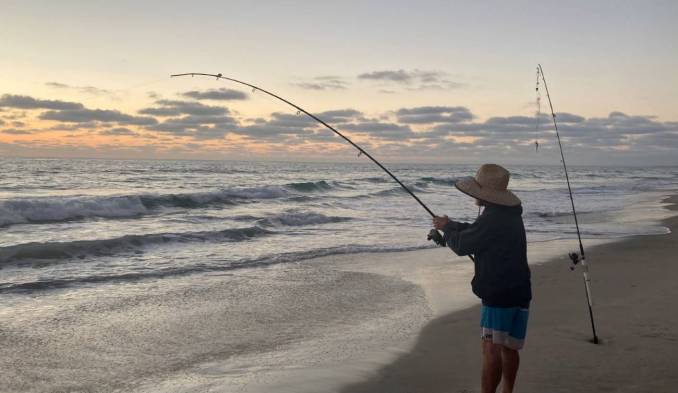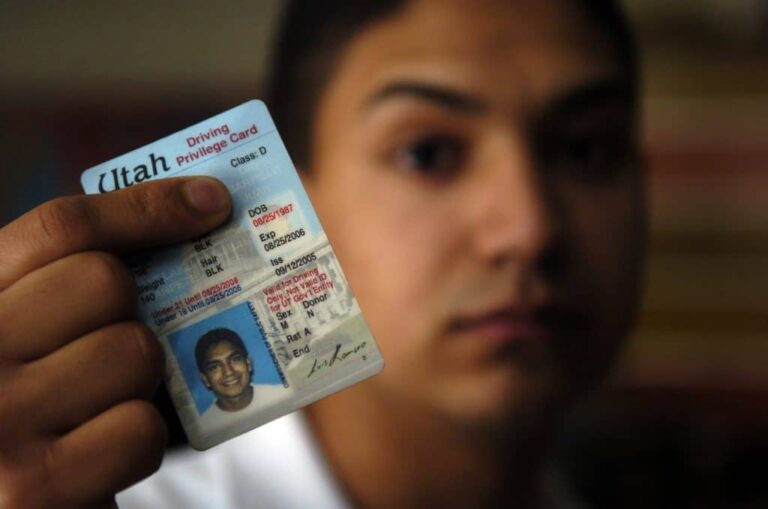Nj Freshwater Fishing Regulations: Ultimate Guide for New Jersey Anglers
New Jersey freshwater fishing regulations are important guidelines for fishing enthusiasts in the state. The regulations cover various aspects such as bag limits, size limits, and fishing seasons, which must be observed to ensure the sustainability and conservation of freshwater fish populations.
It is vital for anglers to understand and strictly adhere to these regulations to promote responsible fishing practices and protect the aquatic ecosystem.
Understanding The Nj Freshwater Fishing Regulations
htmlFreshwater fishing in New Jersey is an exhilarating and rewarding experience. However, it is important to understand and follow the NJ freshwater fishing regulations to ensure the preservation of fish populations and the integrity of the fishing environment. In this section, we will provide an overview of the NJ freshwater fishing regulations and discuss the importance of knowing and following these regulations. We will also explore key terms and definitions you need to be familiar with and provide resources for accessing the regulations.
Overview Of The Nj Freshwater Fishing Regulations
The NJ freshwater fishing regulations are guidelines established by the New Jersey Department of Environmental Protection’s Division of Fish and Wildlife. These regulations govern various aspects of freshwater fishing, such as bag limits, size limits, catch and release practices, and seasons. Adhering to these regulations is crucial for maintaining the health and sustainability of fish populations and ensuring a fair and enjoyable fishing experience for all anglers.
Importance Of Knowing And Following The Regulations
Having a thorough understanding of the NJ freshwater fishing regulations is essential for several reasons. First and foremost, it helps protect the fish populations and their habitats. By following bag and size limits, anglers can prevent overfishing and ensure the reproduction and growth of fish species. Additionally, knowing the regulations allows anglers to contribute to the conservation efforts led by the state, promoting the overall health and stability of the freshwater ecosystems.
Furthermore, complying with the regulations demonstrates responsible angling practices. Fishing within the set limits and adhering to catch and release guidelines fosters sustainability and ethical fishing practices. By respecting these regulations, anglers can contribute to the long-term well-being of the fish and their habitats.
Key Terms And Definitions
To better understand and navigate the NJ freshwater fishing regulations, it is crucial to be familiar with some key terms and their definitions. Here are a few essential terms you should know:
| Term | Definition |
|---|---|
| Bag Limit | The maximum number of a specific fish species that an angler can legally harvest in a single day. |
| Size Limit | The minimum size at which a fish can be legally harvested. Fish smaller than the size limit must be released unharmed. |
| Catch and Release | The practice of releasing a caught fish back into the water unharmed, promoting conservation and sustainability. |
| Season | The specific timeframe during which fishing for a particular species is allowed. |
Resources For Accessing The Regulations
Accessing the NJ freshwater fishing regulations is easy and convenient, allowing anglers to stay up-to-date with the latest guidelines. Here are a few resources you can utilize:
- The official website of the New Jersey Department of Environmental Protection’s Division of Fish and Wildlife offers the most accurate and current regulations. Visit their website at https://www.njfishandwildlife.com/ for detailed information.
- Mobile apps such as “NJ Fishing” provide anglers with access to the regulations on their smartphones. These apps often include additional features like fishing maps, catch logs, and weather forecasts.
- Affiliated fishing organizations, local bait and tackle shops, and fishing forums can provide valuable insights and updates regarding the NJ freshwater fishing regulations.
By familiarizing yourself with these resources, you can ensure that you always have the most current information and remain compliant with the NJ freshwater fishing regulations.
Fishing License Requirements In New Jersey
Different Types Of Fishing Licenses In Nj
To enjoy the abundance of freshwater fishing opportunities in New Jersey, it is essential to understand the fishing license requirements. New Jersey offers several types of fishing licenses to cater to the diverse needs of anglers. These licenses include: – Resident Fishing License: This license is available to individuals who have been a resident of New Jersey for at least 6 months prior to purchasing the license. It grants the holder permission to fish in any freshwater body within the state. – Non-Resident Fishing License: Designed for individuals who do not meet the residency criteria, this license allows non-residents to experience the thrill of freshwater fishing in New Jersey. – Senior Resident Fishing License: Exclusive to residents who are 62 years or older, this license provides senior citizens with a cost-effective way to enjoy their favorite pastime. – 7-Day Vacation Fishing License: Ideal for tourists and visitors, this license permits individuals to fish in New Jersey’s waters for a consecutive 7-day period.Who Needs A Fishing License?
In New Jersey, anyone aged 16 or older is required to possess a fishing license to legally fish in freshwater bodies. This includes ponds, lakes, rivers, and other inland waterways. Regardless of whether you are a resident or non-resident, it is crucial to obtain the appropriate fishing license before casting your line.How To Obtain A Fishing License
Obtaining a fishing license in New Jersey is a straightforward process. There are various convenient options available: 1. Online: Visit the official New Jersey Department of Environmental Protection (DEP) website and navigate to the “Fish & Wildlife” section. From there, you can easily purchase a fishing license online, ensuring a hassle-free experience. 2. Agents: Local agents, such as tackle shops and sporting goods stores, authorized by the DEP, allow anglers to purchase fishing licenses in person. 3. By Mail: For those who prefer the traditional method, fishing licenses can also be obtained by mail. Simply download and complete the license application form from the DEP website and mail it along with the required payment to the provided address.Cost And Expiration Dates
The cost of fishing licenses in New Jersey varies depending on factors such as residency, license duration, and age. Here are the general guidelines: – Resident Fishing License: $22.50 per year – Non-Resident Fishing License: $34.00 per year – Senior Resident Fishing License: $11.00 per year – 7-Day Vacation Fishing License: $19.00 for a consecutive 7-day period It’s important to note that fishing licenses are valid from January 1st to December 31st of the year they are purchased. Therefore, it is advisable to renew your license before it expires to ensure uninterrupted fishing.Exceptions And Exemptions
While most anglers are required to possess a fishing license, there are certain exceptions and exemptions: – Children under the age of 16: Minors below the age of 16 are not required to hold a fishing license. – Active members of the U.S. Military: Active-duty military personnel stationed in New Jersey can fish without a license, as long as they possess a valid military ID. – Disabled individuals: New Jersey residents with a permanent disability may be eligible for a free fishing license. They can obtain this license by providing appropriate documentation to the DEP. Understanding the fishing license requirements in New Jersey is crucial for enjoying a legal and fulfilling fishing experience. By obtaining the right license, you can explore the state’s picturesque freshwater bodies, reel in your catch, and create unforgettable fishing memories all year round.Seasons And Limits For Freshwater Fishing In Nj
Freshwater fishing in New Jersey offers a thrilling and rewarding experience, with a wide variety of species to target. However, it is important to know and abide by the regulations set by the New Jersey Division of Fish and Wildlife. Understanding the fishing seasons, bag and size limits, special regulations, catch-and-release guidelines, and annual updates is essential for an enjoyable and responsible fishing adventure in the Garden State.
Fishing Seasons For Different Species
New Jersey’s freshwater fishing seasons are designed to conserve the fish population, while also providing ample opportunities for anglers. Whether you’re aiming for bass, trout, musky, or other popular species, it is crucial to know when you can legally fish for them. Here are some key fishing seasons to keep in mind:
| Species | Season |
|---|---|
| Bass (Largemouth and Smallmouth) | Open year-round, except for specific waters with additional regulations |
| Trout | Varies depending on the area and waterbody, with spring and fall stocking periods |
| Musky | Generally open from early spring to late fall, but there are specific waterbody regulations |
| Catfish | Open year-round, offering consistent angling opportunities |
| Panfish (Sunfish, Crappie, Perch) | Open year-round, subject to size and creel limits |
Bag And Size Limits
Bag and size limits are crucial to maintain sustainable fish populations. Adhering to these limits ensures that you can continue to enjoy fishing while respecting the environment. Here are some examples of bag and size limits for popular freshwater species in New Jersey:
- Bass: Minimum size of 12 inches and daily limit of 5 fish
- Trout: Varies depending on the waterbody, often ranging from 2 to 6 fish per day
- Musky: Minimum size of 34 inches and a daily limit of 1 fish
- Catfish: Varies depending on the species and waterbody, typically with a generous daily limit
- Panfish: Varies depending on the species and waterbody, often with a combination of size and daily limits
Special Regulations For Certain Water Bodies
Some water bodies in New Jersey have special regulations in place to protect specific species or manage angling pressure. These regulations may differ from the statewide rules. It is essential to familiarize yourself with the special regulations of the waterbody you plan to fish in. Specific waterbody regulations may include restrictions on fishing methods, bait usage, or even additional size and creel limits. Consult the New Jersey Fish and Wildlife website for detailed information on special regulations for each waterbody.
Catch-and-release Guidelines
Catch-and-release fishing is an excellent way to contribute to the conservation of fish populations. Ensuring the safe return of fish to the water allows them to reproduce and thrive. When practicing catch-and-release, it is crucial to handle the fish gently, avoid injury, and release them quickly and carefully. Using barbless hooks and appropriate tackle can also help minimize harm to the fish. Remember, responsible angling is key to preserving the future of our freshwater resources.
Annual Updates And Changes To The Regulations
The New Jersey Division of Fish and Wildlife regularly reviews and updates the freshwater fishing regulations to adapt to changes in fish populations and angling demands. It is essential for anglers to stay informed about these updates to ensure compliance with the latest regulations. The division provides annual summaries and detailed information on any changes, so make sure to check their website or consult with local tackle shops for the most up-to-date information before planning your fishing trips.
Fishing Methods And Gear Restrictions In Nj
Fishing in New Jersey’s freshwater bodies is regulated to protect the fish populations and ensure sustainable fishing practices. The state has established rules and restrictions on fishing methods and gear used. By understanding these regulations, anglers can enjoy their fishing experience while preserving the natural ecosystem. In this blog post, we will discuss the approved fishing methods, banned fishing practices and gear, restrictions on bait and lures, regulations for using live bait and baitfish, and specific rules for fishing tournaments and derbies in New Jersey.
Approved Fishing Methods
When it comes to fishing methods, New Jersey allows various techniques and approaches, making it a versatile fishing destination. Anglers can use the following approved fishing methods to catch freshwater fish:
- Rod and reel
- Handline
- Pole
- Net
- Trotline
- Jugline
- Ice fishing
These fishing methods offer anglers the flexibility to choose their preferred technique and enjoy their fishing experience. Whether you are a seasoned angler or a beginner, New Jersey has options to suit everyone’s style.
Banned Fishing Practices And Gear
New Jersey prohibits certain fishing practices and gear that may harm fish populations or cause damage to the environment. It is essential for anglers to be aware of these restrictions to avoid penalties and contribute to the preservation of the state’s freshwater ecosystem. The following fishing practices and gear are prohibited:
- Use of explosives, firearms, or chemicals to take fish
- Electrofishing devices
- Poison, drugs, or toxic materials as bait
- Using more than two fishing lines or simultaneously operating multiple fishing devices
By adhering to these regulations, anglers can help maintain a sustainable fishing environment and protect the delicate balance of New Jersey’s freshwater habitats.
Restrictions On Bait And Lures
New Jersey has specific rules regarding the bait and lures used in freshwater fishing. The following are the key restrictions:
- Using live fish as bait is prohibited, except for baitfish (discussed in the next section)
- Bait containers must be properly sealed and disposed of responsibly
- Non-artificial lures must not have more than three hooks
- Anglers should not use setlines or trotlines with baited hooks
Adhering to these restrictions not only ensures compliance with state regulations but also helps maintain a sustainable fishing environment by preventing the spread of non-native species and reducing the potential for litter.
Using Live Bait And Baitfish Regulations
New Jersey allows the use of live bait in freshwater fishing, with specific regulations in place to prevent the introduction of non-native species and the spread of diseases. Anglers must adhere to the following regulations for using live bait and baitfish:
- Baitfish can only be used in the water body where they were captured or purchased
- Anglers must obtain the necessary permits for transporting and using baitfish
- The use of uncertified baitfish is prohibited
- Excess baitfish or baitfish not used in fishing must be disposed of responsibly
These regulations aim to protect the native fish populations and maintain the balance of New Jersey’s freshwater ecosystems.
Rules For Fishing Tournaments And Derbies
New Jersey has specific rules for fishing tournaments and derbies to ensure fair competition and minimal impact on the fish population. Anglers participating in these events must abide by the following regulations:
- The tournament or derby must be registered with the New Jersey Division of Fish and Wildlife
- Fishing must be conducted during the designated time specified in the permit
- Anglers may use only approved fishing methods and gear
- All caught fish must comply with size and possession limits
- Anglers should follow proper catch and release practices
These rules help maintain the integrity of fishing tournaments and derbies while protecting the fish populations and ensuring a sustainable fishing environment for future generations.
Specific Rules For Fishing In Selected Nj Waters
When it comes to freshwater fishing in New Jersey, it is important to be aware of the specific rules and regulations that apply to different bodies of water. Whether you are planning to cast your line in the Delaware River, Lake Hopatcong, or the Manasquan Reservoir, understanding the fishing rules that govern these areas will help ensure a successful and enjoyable fishing experience. In this section, we will explore the various rules that apply to fishing in specific rivers, lakes, and reservoirs in New Jersey, as well as species-specific regulations, boat and fishing access rules, and any local ordinances or additional restrictions that may be in place.
Rules For Fishing In Specific Rivers, Lakes, And Reservoirs
Fishing in specific bodies of water in New Jersey is subject to certain rules and regulations. Below are some important guidelines to keep in mind:
Delaware River
If you plan to fish in the Delaware River, there are several rules you need to be aware of. These include:
- Minimum size limits for certain species such as striped bass and shad
- Seasonal restrictions for fishing certain species
- Specific areas where fishing might be prohibited or restricted
It is crucial to consult the official New Jersey fishing regulations for the Delaware River to ensure compliance with these rules.
Lake Hopatcong
Fishing in Lake Hopatcong also comes with its own set of regulations. Here are a few key points:
- Seasonal closures in certain areas for the protection of spawning fish
- Restricted areas for boat access
- Specific bag limits for various species, including largemouth bass and muskellunge
Make sure you familiarize yourself with the specific rules for Lake Hopatcong before heading out to fish.
Manasquan Reservoir
When fishing in the Manasquan Reservoir, it is essential to adhere to the following regulations:
- Designated fishing areas accessible to the public
- Electric motors only allowed on boats
- Specific rules for catch and release, including the use of barbless hooks
Before casting your line at the Manasquan Reservoir, review the official guidelines to ensure a compliant angling experience.
Species-specific Regulations
Freshwater fishing regulations in New Jersey also include species-specific rules. Depending on the species you are targeting, you may encounter limitations on size, daily bag limits, or specific seasons when fishing is allowed. It is crucial to consult the official regulations for the most up-to-date information on these species-specific rules when planning your fishing trip.
Boat And Fishing Access Regulations
Boaters and anglers should be aware of boat and fishing access regulations that may be in place for certain bodies of water. These regulations can include restrictions on boat motor size and type, launch permits, or designated fishing areas. Before heading out on the water, ensure you are familiar with any specific rules related to boat and fishing access to help avoid any potential violations or complications during your fishing trip.
Local Ordinances And Additional Restrictions
While statewide fishing regulations apply to all New Jersey waters, including rivers, lakes, and reservoirs, it is important to be aware of any additional local ordinances or restrictions that may be in place. Some municipalities or counties may have their own rules regarding fishing, such as limits on fishing hours or specific bait and tackle restrictions. To ensure compliance, always check for any local ordinances or additional restrictions that might apply to the specific waterbody you intend to fish in.
Conclusion
To ensure an enjoyable and responsible freshwater fishing experience in New Jersey, it is crucial to familiarize yourself with the state’s fishing regulations. As discussed in this blog post, these regulations aim to protect fish populations and their habitats, while also promoting sustainable fishing practices.
By following these guidelines, you can help preserve New Jersey’s diverse aquatic ecosystems for future generations of anglers to enjoy. Whether you’re a seasoned angler or new to the sport, being knowledgeable about the regulations is key to making the most of your fishing trips in the Garden State.




